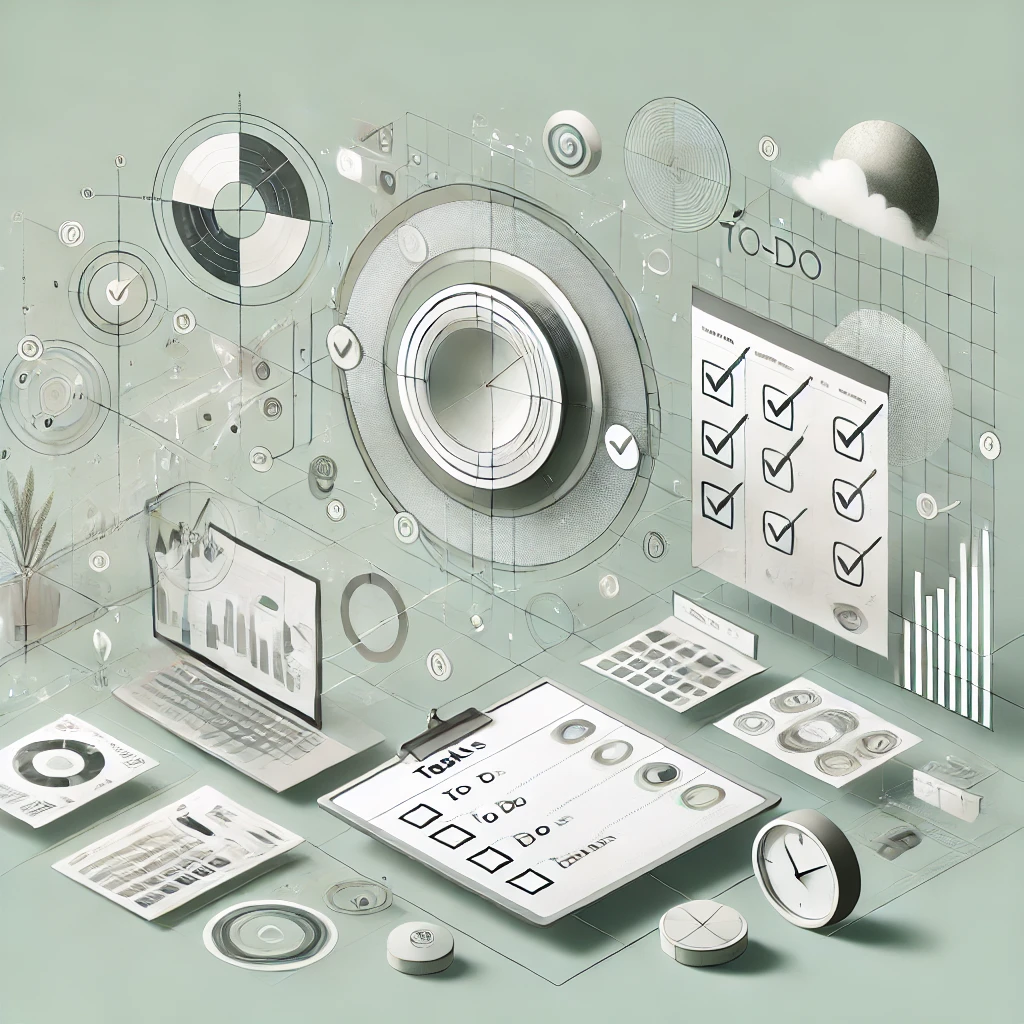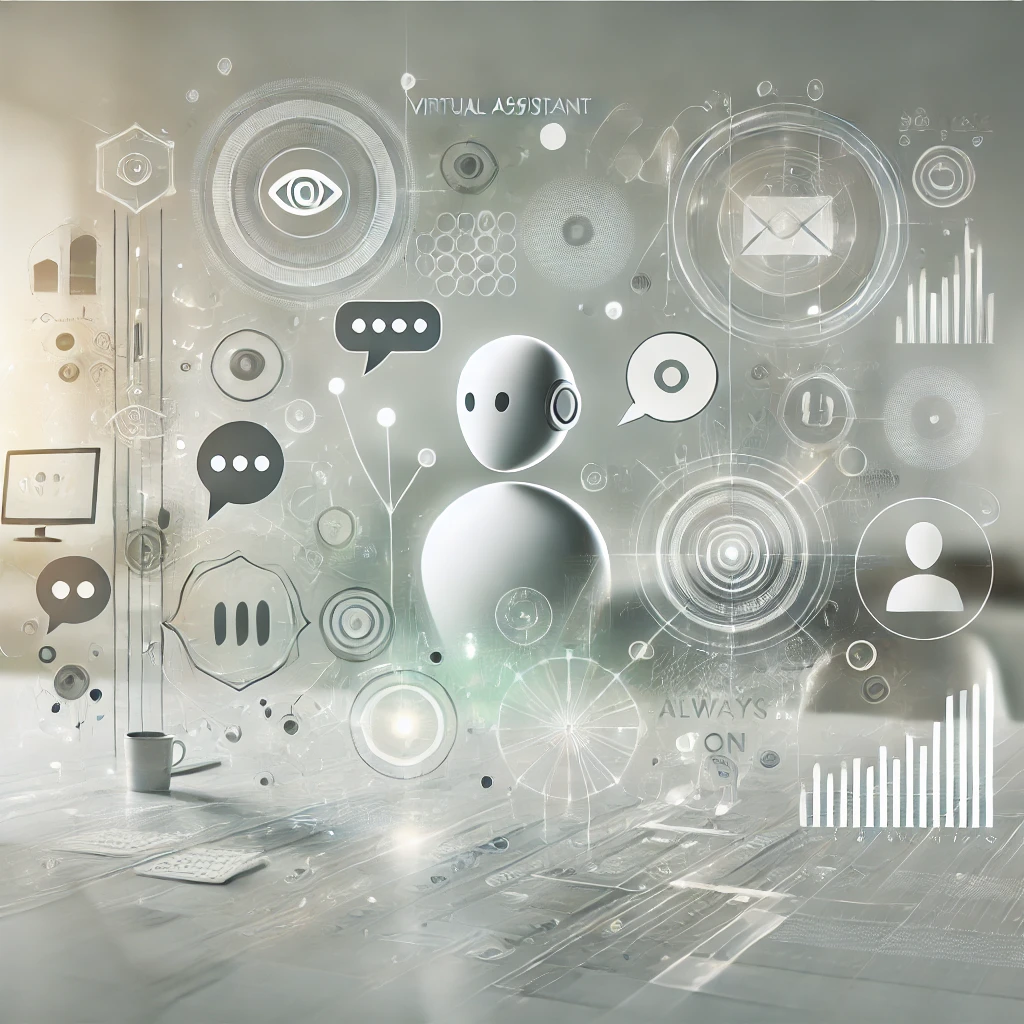How to Boost Productivity at Home with AI Tools

In today's fast-paced world, finding a balance between work and personal life at home can be quite the puzzle. With the rise of remote work and freelancing, many are seeking ways to boost their productivity without sacrificing their Zen. Enter AI productivity tools—your tech-savvy companions aimed at making life simpler and more organized. These intelligent tools can help you manage tasks, streamline your day, and even anticipate your needs, allowing you to focus on what matters most. In this guide, we'll explore how to be productive at home, leveraging AI to transform your workspace into a haven of calm and efficiency.
Note: The brands and examples discussed below were found during our online research for this article.
Discover AI Productivity Tools
Essential Tools for Remote Workers
Remote workers are often juggling multiple tasks and deadlines. To keep everything on track, AI productivity tools can be a game changer. Here are a few essentials:
Task Managers: Apps like himala AI, Todoist, and Trello use AI to prioritize tasks and set reminders. They adjust based on your habits, helping you stay on top of everything.
Virtual Assistants: Tools like Siri, Alexa, himala and Google Assistant can schedule meetings, set reminders, and even control smart home devices, letting you focus on outputs rather than inputs.
Time Tracking Software: With AI-driven tools like RescueTime, you can analyze how you spend your time and get suggestions on how to improve productivity.
These tools help streamline your workflow, allowing you to focus on what truly matters.

Task management

Virtual Assistant
Time tracking
How AI Can Simplify Tasks
AI is a powerful ally in simplifying daily tasks, making work more manageable. For instance, AI-powered scheduling tools like Calendly can automatically find the best meeting times, reducing back-and-forth emails. more than that himala for instance can be your AI email assistant by scanning your inbox and prioritizing important messages and actions as tasks, helping you focus on critical communications.
Furthermore, AI content generation tools, like Grammarly, offer real-time suggestions to improve your writing, ensuring clarity and professionalism. Then there’s Zapier, which automates repetitive tasks by connecting different apps, letting you save valuable time.
These AI productivity tools work quietly in the background, minimizing distractions and optimizing your workflow. By taking care of mundane tasks, AI lets you concentrate on strategic initiatives and creative work, boosting your overall efficiency.
Integrating AI into Daily Routines
Integrating AI into your daily routine can seamlessly enhance productivity. Start with morning briefings using AI assistants like himala Assistant, which can provide you with a rundown of your schedule, weather updates, and news highlights.
Use AI-driven note-taking apps like Evernote or OneNote to organize thoughts and ideas throughout the day. These apps can convert voice notes into text, ensuring you never miss an important detail. For fitness, AI apps like MyFitnessPal track your health metrics and suggest personalized exercise routines.
In the evening, AI can even help unwind. Platforms like Headspace use AI to tailor meditation sessions, helping you maintain Zen. By integrating AI into each stage of your day, you create a consistent rhythm that enhances focus and reduces stress, allowing you to maintain a balanced and productive lifestyle at home.
How to Be Productive at Home
Creating an AI-Driven Schedule
Crafting an AI-driven schedule is a game-changer for boosting productivity at home. Begin by integrating AI-assistants tools like himala or ToDoIst with Google Calendar, which can automatically schedule and adjust meetings based on your availability and priorities. These tools learn from your habits, offering suggestions for optimal time blocks for focused work and breaks.
Additionally, employ their AI task managers, which use machine learning to prioritize tasks, ensuring you tackle the most important ones first. They can also analyze your productivity patterns, suggesting when you’re most efficient for different types of work.
Integrating AI assistants like Alexa or Siri can provide reminders and gentle nudges throughout the day, keeping you on track. By letting AI manage your schedule, you reduce decision fatigue and free up mental space for creative and strategic thinking, making your home workspace a more productive environment.
I think what makes AI different from other technologies is that it’s going to bring humans and machines closer together. AI is sometimes incorrectly framed as machines replacing humans. It’s not about machines replacing humans, but machines augmenting humans.
AI for Work-Life Balance
AI can be a powerful ally in achieving work-life balance while working from home. One approach is using AI tools like RescueTime to monitor how you spend your time online. It provides insights and suggestions on how to optimize your work hours and minimize distractions.
AI can also help you disconnect after hours. Apps like Forest encourage you to stay off your phone by growing a virtual tree when you refrain from using your device. This fosters mindfulness and helps maintain boundaries between work and personal time.
Moreover, AI wellness apps like Shine offer personalized self-care tips and mindfulness exercises, keeping your mental health in check. By integrating these AI tools, you can create a healthy balance between work and relaxation, ensuring that your home remains a sanctuary for both productivity and personal well-being.
Overcoming Home Distractions with AI
Distractions at home can hinder productivity, but AI tools offer practical solutions. One effective strategy is using AI noise-canceling apps like Krisp, which filter out background noise during calls, ensuring clear communication without interruptions from household sounds.
AI focus apps, such as Freedom, can block distracting websites and apps according to your schedule. By limiting access during work hours, these tools help maintain your concentration and productivity.
For those who find it hard to stay on task, AI assistants like Focus@Will provide personalized music tracks designed to boost focus and minimize distractions. This can create an optimal environment for deep work.
AI also helps manage notifications. Tools like Boomerang for Gmail can pause email notifications outside of specified hours, preventing unnecessary distractions. By leveraging these AI solutions, you can create a distraction-free workspace, allowing you to fully engage with your tasks and enhance your productivity at home.
How to Improve Productivity
Step 1
Setting Goals with AI Assistance
SMART (Specific, Measurable, Achievable, Relevant, Time-bound) goals
Step 2
Tracking Progress Using AI
Smart integrations to turn you into a productivity champion
Step 3
Enhancing Focus through AI Solutions
Optimize your environment and focus
Setting Goals with AI Assistance
Setting and achieving goals is crucial for productivity, and AI can assist in refining this process. AI tools like Notion provide templates for setting SMART (Specific, Measurable, Achievable, Relevant, Time-bound) goals, ensuring clarity and focus. These platforms can track progress and provide visual dashboards, keeping your objectives front and center.
AI-driven personal assistants, such as Replika, offer conversational support, helping you brainstorm and articulate goals. By engaging with these tools, you can refine your objectives, making them more actionable and achievable.
Moreover, AI can analyze past performance data, offering insights into your strengths and areas of improvement. Tools like GoalsOnTrack use AI to suggest actionable steps and reminders, assisting you in staying committed to your targets.
By leveraging AI for goal-setting, you gain a structured approach to personal and professional development, enhancing your ability to achieve meaningful milestones and improve overall productivity.
Tracking Progress Using AI
Tracking progress is a key component of improving productivity, and AI provides tools that make it more efficient and insightful. AI platforms like Asana or Monday.com allow you to monitor project developments in real-time, providing status updates and visual dashboards to keep you informed.
These tools can automate progress tracking by integrating with other apps, gathering data from various sources to give a comprehensive view of your achievements. This eliminates the need for manual updates, saving time and reducing errors.
AI analytics tools, such as Domo, use machine learning to interpret progress data, offering actionable insights and forecasting potential outcomes. This data-driven approach helps in identifying trends and areas for improvement, allowing you to adjust strategies proactively.
Then there’s himala, which combines conversational AI with smart integrations to turn your conversations, emails, and chats into actionable tasks. Whether it’s following up on a project, setting reminders, or keeping track of tasks across work and personal life, Himala ensures nothing slips through the cracks. With these AI-powered tools, progress tracking becomes less about managing and more about achieving.
Enhancing Focus through AI Solutions
AI solutions can significantly enhance focus by creating an optimal environment for concentration. AI-driven apps like Brain.fm use scientifically designed music to improve focus and productivity. These tools learn your preferences, adjusting soundscapes to match your work style.
For those easily distracted by digital noise, AI software like Cold Turkey Blocker can restrict access to distracting websites and apps during work hours, helping maintain attention.
AI can also assist in managing notifications. Tools like Inbox Pause temporarily halt email notifications, allowing you to dedicate uninterrupted time to deep work. This reduces the temptation to multi-task, which can often fragment attention.
Moreover himala takes focus a step further by acting as a conversational AI assistant that organizes your tasks, prioritizes them, and offers reminders when needed. By turning scattered information from emails, chats, and apps into a streamlined task list, himala clears the mental clutter so you can focus on what truly matters. These AI tools are transforming how we manage distractions and stay productive in our daily lives.

Wail El Badaoui
Wail is a seasoned Product Manager with over 7 years of experience working remotely. Specializing in building and optimizing AI-powered products. With a deep understanding of the challenges and rewards of remote work, Wail is passionate about leveraging AI tools to simplify workflows, boost productivity, and create a more balanced work-life environment. When not streamlining user experiences, Wail enjoys experimenting with new tech, fine-tuning productivity hacks, and sharing insights on optimizing remote work.